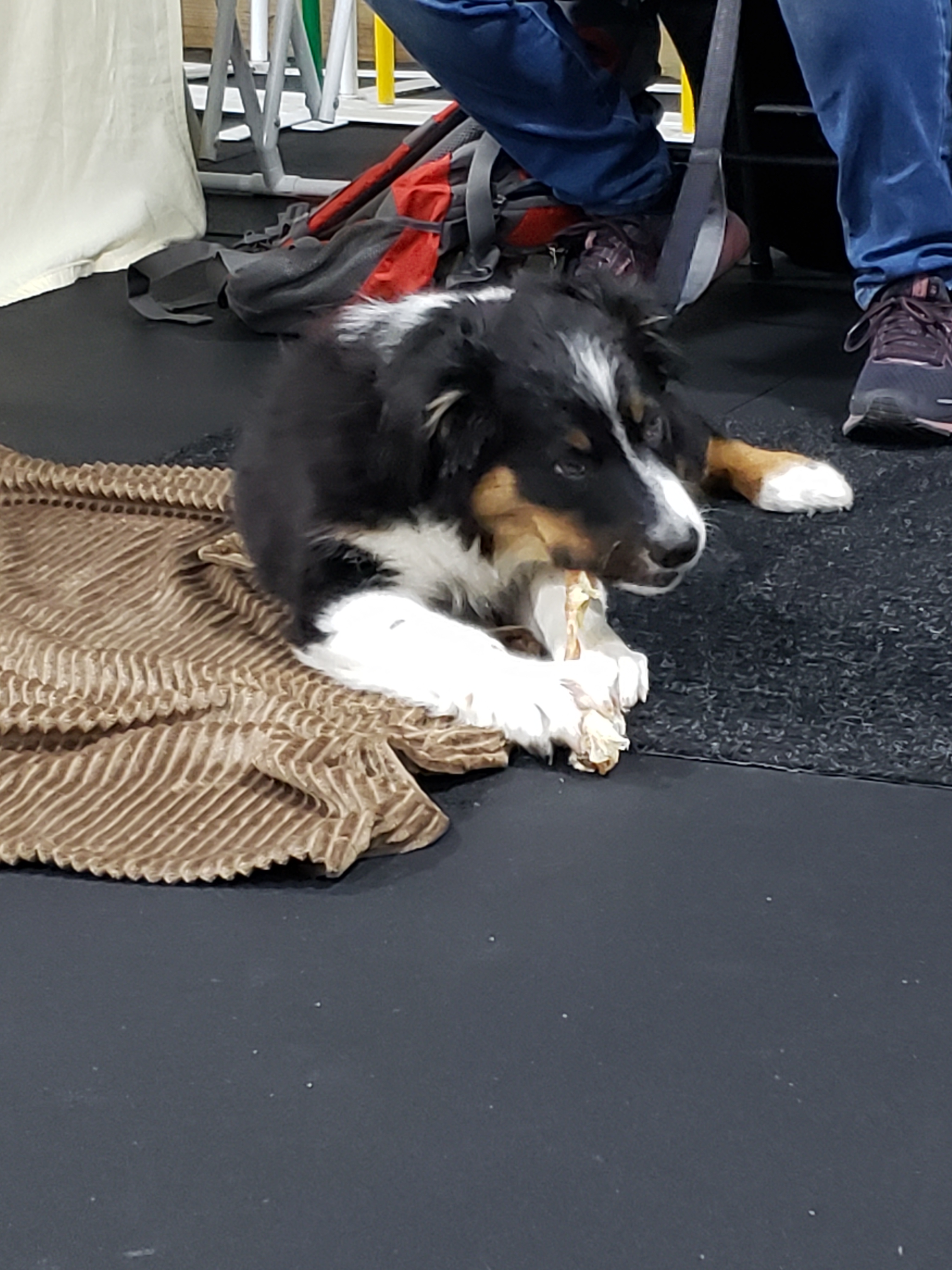Puppies are little biting machines. They bite things that move, things that don’t move, each other, your hands, anything. Not only is this normal, it is an important part of their development. When puppies play, they learn from their playmates’ yelps and body language when a bite is too hard. Over time, a puppy figures out how to use her mouth more gently (inhibit her bite) to keep play going.
Why you should allow some biting?
Your puppy needs to learn that human skin is fragile and can’t be treated as roughly as a fur coat. Let your puppy bite you every now and again so you can let her know which bites are too hard. Otherwise she won’t learn to inhibit her bite and, if she is ever startled and bites on instinct, she may cause serious injury.
Rule of thumb: From 6-18 weeks of age, allow your puppy to bite when playing as long as it is not too hard. This phase WILL PASS, so I always encourage people to stay calm and try not to worry about how to STOP biting. Like many other phases of puppy training, puppy biting is best prevented by good pro-active managment. That would entail:
- proactively using your crate when you know you can't give your puppy 100% of your attention
- giving your puppy really great chew items to keep them busy

- don't get angry, just be firm when re-directing
How to teach your puppy to bite more softly.
- Hard bites should result in a time-out. Stop play, and leave your puppy alone or put her in a time-out area for one minute.
- Each week ask your puppy to bite a little softer by timing her out for her hardest bites.
- Don’t phase out play biting all together until your puppy is reliably biting softly. Then you can re-direct her to toys or time her out for all bites.
Rate how hard your puppy bites:
1 – You can feel it, but barely.
2 – There’s some pressure, but you barely flinch.
3 – Wow, those little teeth are sharp, but it’s tolerable.
4 – Ok, that hurts a bit. It might even leave a mark.
5 – Ack! That hurts and your hand is now bleeding.
For one week, time your puppy out if she gives you a level 5 bite. The following week, time out anything that is a 4 or above. Continue this process until your puppy consistently delivers only level 1 bites.





